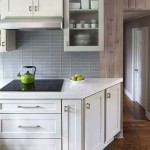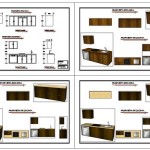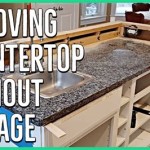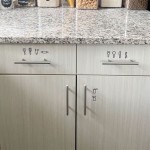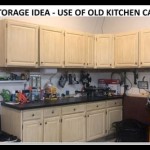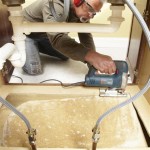How Much Does It Cost To Replace Kitchen Countertops And Cabinets?
Replacing kitchen countertops and cabinets is a significant home improvement project that can drastically transform the aesthetics and functionality of a kitchen. Understanding the costs involved is crucial for budgeting purposes and making informed decisions. Numerous factors influence the final price, including the materials chosen, the size of the kitchen, the complexity of the design, and labor expenses. This article provides a comprehensive overview of the various aspects that contribute to the cost of replacing kitchen countertops and cabinets.
Before delving into specific price ranges, it is important to categorize the types of kitchen renovations involved. A simple replacement typically involves removing the existing countertops and cabinets and installing new ones in the same footprint. A partial renovation might include replacing just the countertops or refacing the cabinets. A complete remodel, on the other hand, involves a significant alteration of the kitchen layout, potentially requiring plumbing and electrical work, as well as modifications to walls and flooring. Each of these scenarios carries different cost implications.
Factors Influencing the Cost of Kitchen Countertops
The choice of countertop material is a primary driver of cost. Countertop materials vary widely in price, durability, and aesthetic appeal. Here are some of the most common options and their associated costs:
Granite: Granite is a popular choice due to its natural beauty, durability, and resistance to heat and scratches. The cost of granite countertops can range from $40 to $100 per square foot installed. The price depends on the grade and rarity of the granite slab.
Quartz: Quartz, an engineered stone, offers a consistent appearance and is highly durable. It is stain-resistant and requires minimal maintenance. Quartz countertops typically cost between $50 and $120 per square foot installed.
Solid Surface: Solid surface countertops, such as Corian, are non-porous and can be seamlessly integrated with sinks. They offer a variety of colors and patterns but are less resistant to heat than granite or quartz. Expect to pay between $40 and $80 per square foot installed.
Laminate: Laminate countertops are the most affordable option, consisting of a plastic surface bonded to particleboard or MDF. While they offer a wide range of colors and patterns, they are less durable than other materials. Laminate countertops typically cost between $10 and $40 per square foot installed.
Wood: Wood countertops, such as butcher block, provide a warm and natural aesthetic. They require regular maintenance to prevent staining and water damage. Wood countertops can range from $35 to $200 per square foot installed, depending on the type of wood and the thickness of the countertop.
Concrete: Concrete countertops offer a unique and industrial look. They are highly customizable but may require sealing to prevent staining. Concrete countertops typically cost between $70 and $150 per square foot installed.
Beyond the material itself, additional costs associated with countertops include fabrication, installation, edge detailing, and sink cutouts. Complex edge profiles and intricate designs will increase the overall cost.
Factors Influencing the Cost of Kitchen Cabinets
Cabinets are a major component of kitchen renovations, and their cost can vary based on several factors, including the type of cabinet, the material used, the construction quality, and the style. Cabinet options generally fall into three categories:
Stock Cabinets: Stock cabinets are pre-made and available in standard sizes and styles. They are the most affordable option and are readily available at home improvement stores. Stock cabinets typically cost between $70 and $200 per linear foot.
Semi-Custom Cabinets: Semi-custom cabinets offer more flexibility than stock cabinets, allowing for modifications to size, style, and finish. They bridge the gap between stock and custom cabinets in terms of both price and customization. Semi-custom cabinets typically cost between $150 and $650 per linear foot.
Custom Cabinets: Custom cabinets are built to order, providing the highest level of customization. They can be designed to fit specific dimensions and incorporate unique features. Custom cabinets are the most expensive option, with prices ranging from $500 to $1,500 per linear foot or more.
The materials used in cabinet construction also impact the cost. Common cabinet materials include:
Solid Wood: Solid wood cabinets are durable and offer a classic aesthetic. They are typically more expensive than other materials. Common wood choices include oak, maple, cherry, and walnut. Prices vary based on the wood species and grade.
Plywood: Plywood is a stable and durable option for cabinet boxes. It resists warping and is often used in high-quality cabinets. Plywood cabinets are typically more expensive than particleboard or MDF.
Particleboard: Particleboard is an affordable option for cabinet boxes. It is less durable than plywood and is susceptible to water damage. Particleboard is often used in stock cabinets.
Medium-Density Fiberboard (MDF): MDF is a dense and smooth material that is ideal for painted cabinets. It is less prone to warping than solid wood and provides a smooth surface for paint. MDF is a popular choice for both stock and semi-custom cabinets.
Other factors that influence cabinet costs include the door style, hardware (knobs, pulls, hinges), interior accessories (drawers, pull-out shelves), and finishing (stain, paint, glaze). Complex door styles, high-end hardware, and custom finishes will increase the overall cost.
Additional Costs to Consider
Beyond the cost of countertops and cabinets, several other expenses can contribute to the overall cost of a kitchen renovation:
Labor Costs: Labor costs typically account for a significant portion of the total project cost. Installation of countertops and cabinets requires skilled labor, including demolition of existing fixtures, preparation of the surfaces, and precise installation of the new components. Labor costs vary depending on the region, the complexity of the project, and the contractor's rates. Expect to pay between $50 and $150 per hour for professional installation services.
Demolition and Disposal: Removing the existing countertops and cabinets can generate significant debris. Demolition and disposal costs may include labor for removing the old materials, as well as fees for disposing of them at a landfill or recycling center. Some contractors include demolition and disposal in their overall project quote.
Plumbing and Electrical Work: If the kitchen renovation involves relocating sinks, appliances, or electrical outlets, plumbing and electrical work will be necessary. These services require licensed professionals and can add significantly to the project cost. A simple sink relocation may cost a few hundred dollars, while a more extensive electrical re-wiring project could cost several thousand dollars.
Flooring: Replacing or updating the kitchen flooring may be part of the overall renovation project. Flooring options range from affordable laminate to high-end tile or hardwood. The cost of flooring depends on the material chosen and the size of the kitchen.
Painting: Fresh paint can enhance the look of new countertops and cabinets. Painting the walls, ceiling, and trim will add to the overall project cost. The cost of painting depends on the size of the kitchen and the type of paint used.
Appliances: Replacing kitchen appliances is often done in conjunction with countertop and cabinet replacements. The cost of new appliances can range from a few hundred dollars for a basic refrigerator to several thousand dollars for a high-end range.
Permits: Depending on the scope of the renovation, permits may be required from the local building department. Permit fees vary depending on the municipality and the type of work being done. It is important to check with the local building department to determine whether permits are required for the project.
Unexpected Costs: It is always a good idea to set aside a contingency fund to cover unexpected costs that may arise during the renovation process. These costs could include unforeseen structural issues, hidden plumbing or electrical problems, or changes in design choices.
In summary, determining the cost to replace kitchen countertops and cabinets involves a careful assessment of numerous factors. The materials selected for both countertops and cabinets are primary cost drivers. The complexity of the installation, along with labor and incidental expenses, also contributes significantly to the final price. Obtaining multiple quotes from reputable contractors, clearly defining the scope of the project, and planning for unexpected costs are essential steps in budgeting for a kitchen renovation.

How Much Does It Cost To Replace Your Kitchen Cabinets

Average Cost To Replace Cabinets Forbes Home

How Much Does Countertop Installation Cost 2024 Angi

Average Countertop Installation Cost By Type Size And Material Forbes Home

Cost To Replace Kitchen Cabinets Countertops 2024

Fixr Com Cost To Install Kitchen Countertops Countertop Replacement

How Much Does Countertop Installation Cost 2024 S

How Much Does It Cost To Replace Kitchen Cabinets

How Much Does A Kitchen Remodel Cost Forbes Home

How Much Do Quartz Countertops Cost Forbes Home

